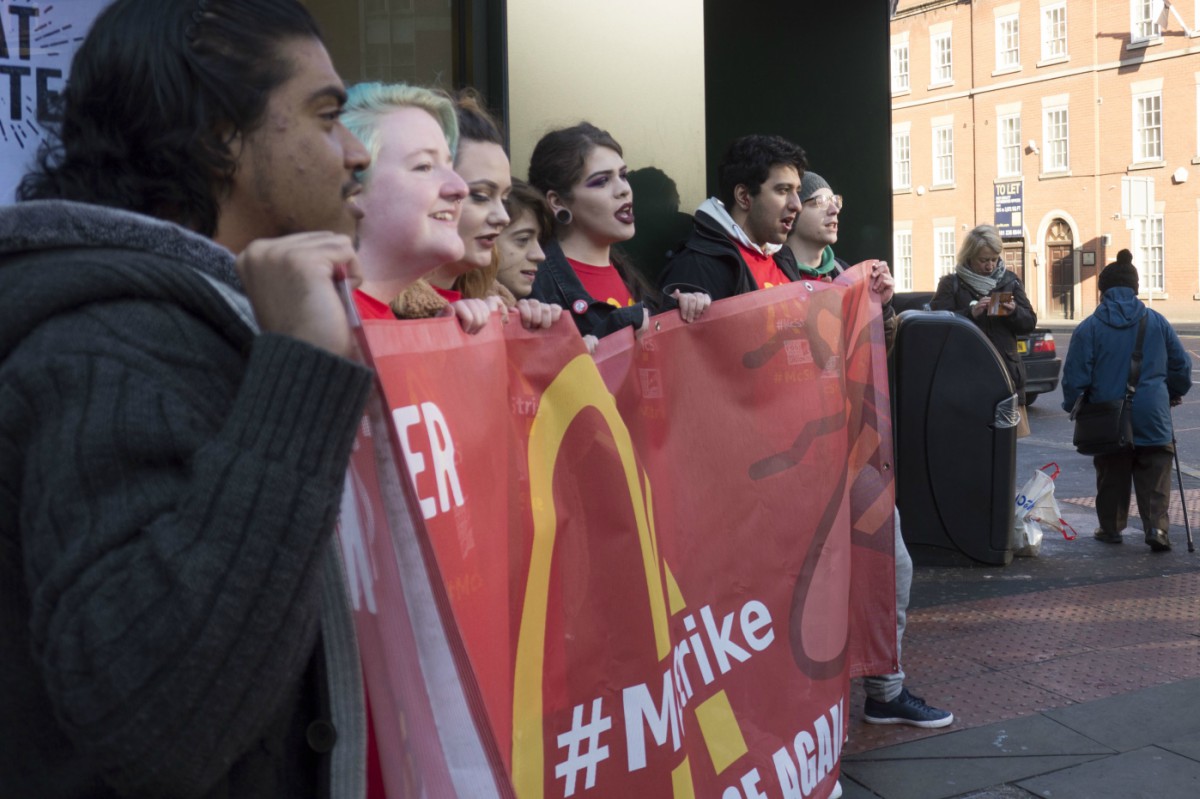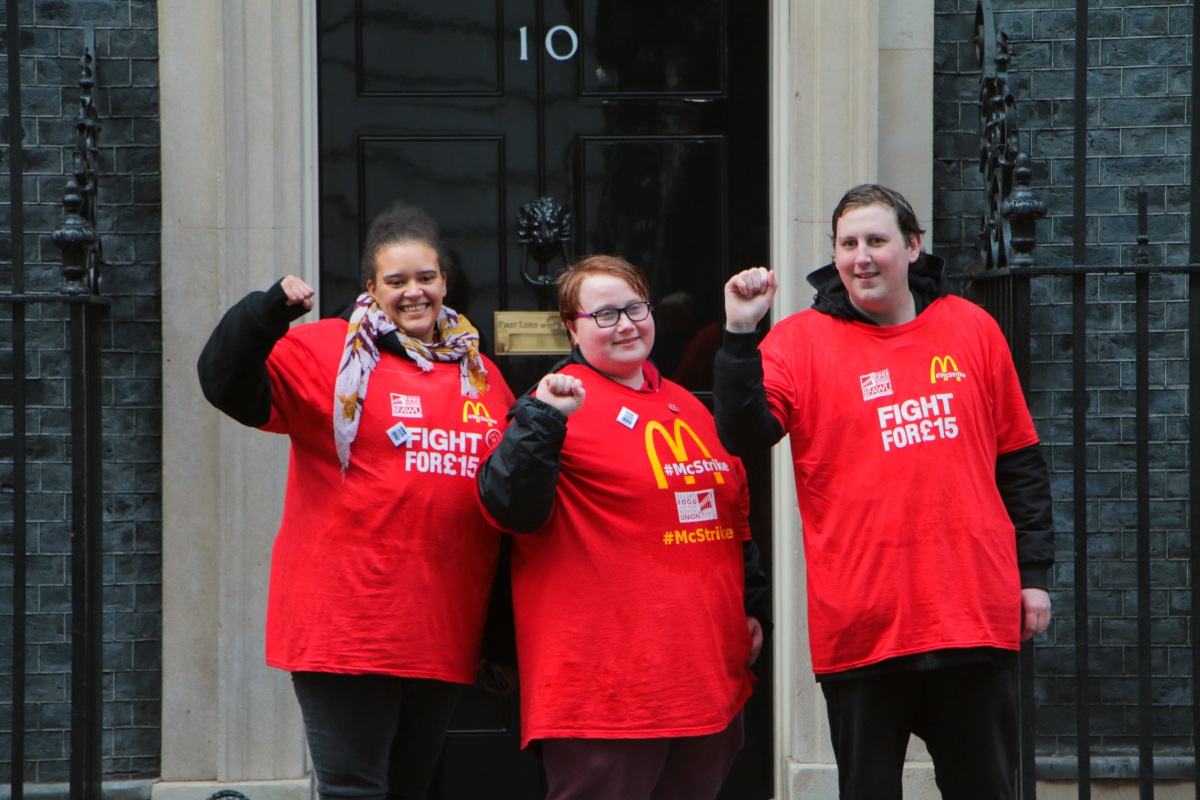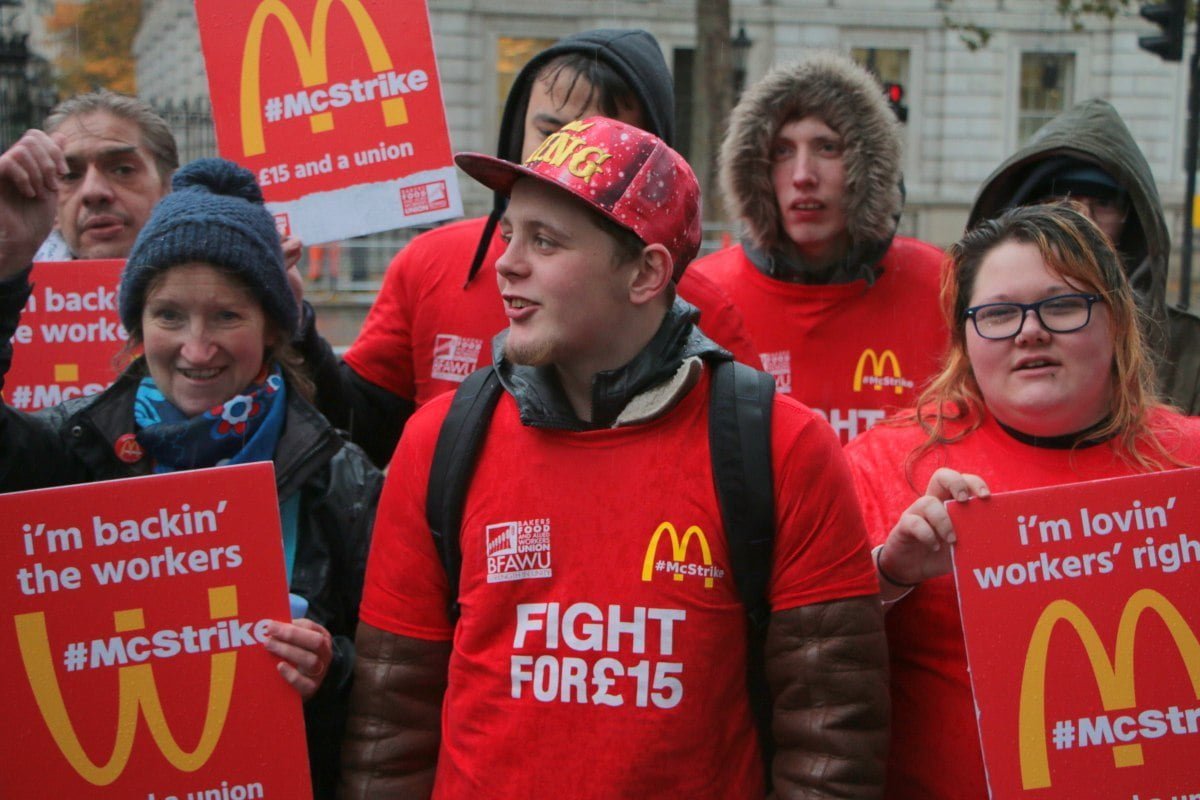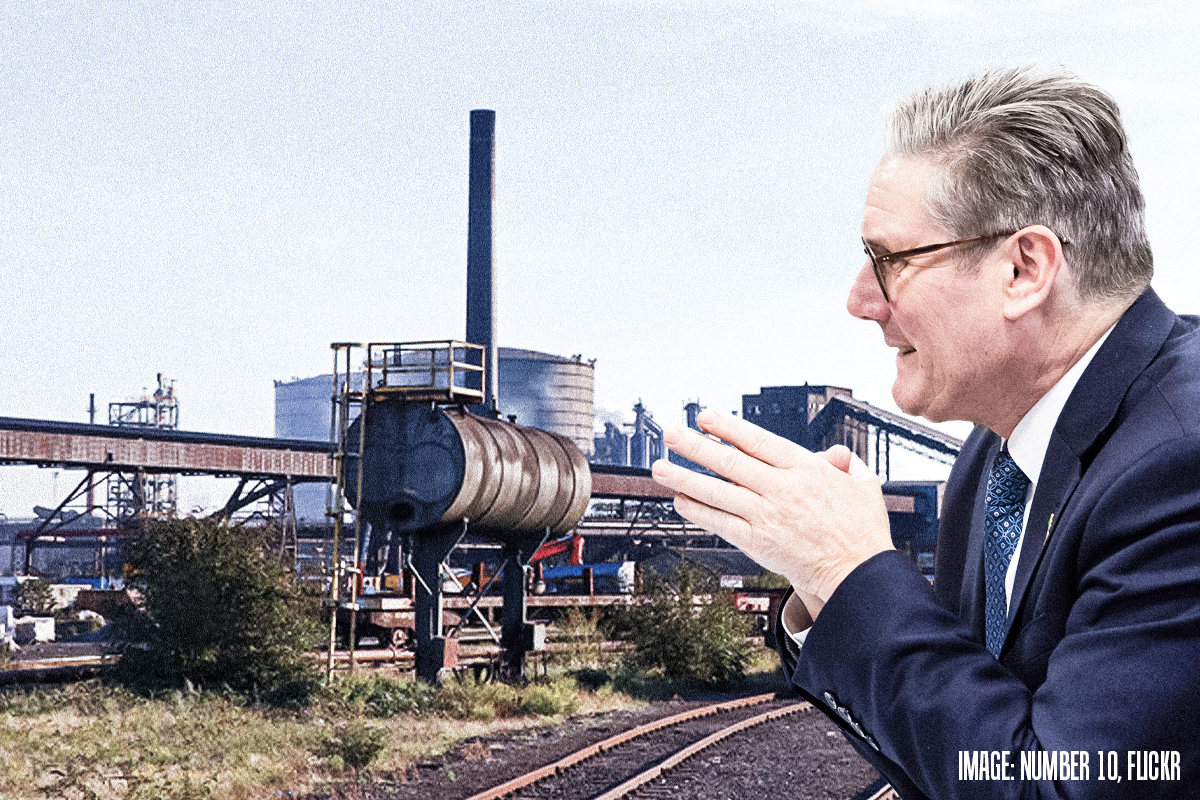The ‘McStrike’ campaign at the infamous fast food chain has helped organise workers against low pay and precarious conditions. Socialist Appeal activists recently spoke to one McDonald’s worker about their experiences of unionisation.
Workers at McDonald’s have hit the news in recent years with their fight for decent wages and conditions. Staff at a number of branches of the multinational fast food chain have taken strike action, demanding a £15 per hour living wage, an end to zero-hour contracts, and union recognition.
The ‘McStrikers’ are organised within BFAWU: the Bakers, Food, and Allied Workers Union. By organising and taking militant action, they have shown the way forward in the struggle against low pay and precarious work.
Socialist Appeal recently spoke to a McDonald’s worker about unionisation efforts at his workplace, to find out what workers across the board can learn from these experiences of organising against exploitation.
Socialist Appeal: What are the conditions like working in McDonald’s?
McDonald’s worker: Working in McDonald’s is not really rewarding, but it is very demanding. We are subject to unreliable working hours at unbelievably low wages. This is even worse for me as a young worker, as there are youth rates. The amount of work young workers have to do is not less, and we are not any less responsible than older workers. Hence the push for our key demands in the McStrike campaign: an end to zero-hour contracts and minimum of £15 per hour across the board.
In our McDonald’s, I would say that there isn’t much conflict between managers or coworkers, and there are efforts for those two groups to fraternise. The truth is that the managers are also workers, and they usually have to deal with extra pressure from issues such as abusive customers.
All the company and the franchise owners care about is themselves, and they will not allow managers to ban problematic customers because it would hurt their profits – it really is all about that. We make these profits and yet they give us barely anything.
 What made you decide to try unionising your workplace?
What made you decide to try unionising your workplace?
Being a worker and seeing the history of workers’ movements throughout the world is very inspiring and gives us a hope for better days. But for that we need to be prepared.
It was around December last year when I discussed with a young coworker what it could be like if we had a union. But we realised the task would be extremely tough without any support.
At the beginning of lockdown I first heard about the McStrike campaign, and how a few workplaces had already been on strike. This aroused hope again. If a union has already had that much success, surely the path is not going to be impossible. We need to participate and help make this a reality for all the workers in this industry.
Fast food workers unionising to improve conditions for all of us would just be the beginning of something much bigger.
How have your colleagues responded to the idea?
Not only did most workers not know about what a union even is, but there were also massive doubts on whether this could work at all. With most of the workers I am closer to, there was also a very visible case of their self interest, which aligns with their class interest.
What struggles have you been facing in your unionisation efforts?
There are difficulties associated with unionising. And one of the biggest problems is the illusions in capitalist ideology the workers are stuck under.
Then there is also the issue of a few workers thinking we are being selfish, saying this would harm the business. It was therefore necessary to explain that the bosses – who only employ us to make a profit – do not care about us, and that our interests are different to theirs.
Another issue is opposition from management. There have been places where we got assistant managers and such on board, who gave us their contact details to participate. But managers can be very hostile. If you get caught as an organiser, you can get ostracised. Sure, you cannot get kicked out of a job for being a worker-organiser legally, but they can have a hostile approach.
An important thing to mention is that the formation of cliques within stores based on nationality, etc. can intensify language barriers. Workers tend to identify based on nationality, and sometimes this is exploited. Managers can have a hold on the minds of workers who are similar to them.
 What would you say to readers who find themselves in a similar situation?
What would you say to readers who find themselves in a similar situation?
Organising workers is a long and hard process. There will be defeats and victories. But if we are to ever achieve our class’ victory, organising workers is the most important goal.
If some workers find themselves in an exploitative workplace and then see themselves unable to find a union that can actually support them, it’s important to have baby steps, at least.
Organising in your workplace is the first step to encouraging class consciousness. So start talking to your colleagues. Find out what issues and problems they have; what things are closer to their heart than others; and how you could change things. People feel a lot more enthusiastic about bringing change when they actually feel it deeply.
What are your hopes for your union branch?
Currently we have organised a few fast food places – such as McDonald’s, KFC, Burger King, etc. – across the city; and we are also working with pub workers. Our current aim would be to provide guidance to workers through this pandemic, which is making all our lives worse. We shouldn’t have to die because someone wants fried chicken.
We are going to politicise our work much more now. A situation like this pandemic makes it very clear that we are not playing by the same rules as the bosses and the establishment. They do not care about us.
How would you relate your efforts unionising your workplace with your support of socialism?
As I said before, organising workers and helping them to understand their own class interests – and their own power – is really the first step to challenging capital.
To bring about socialist change, workers need to get organised. Forming unions and giving workers a platform where they can interact and help each other is a start. And this is what will help us to get to the next step.






